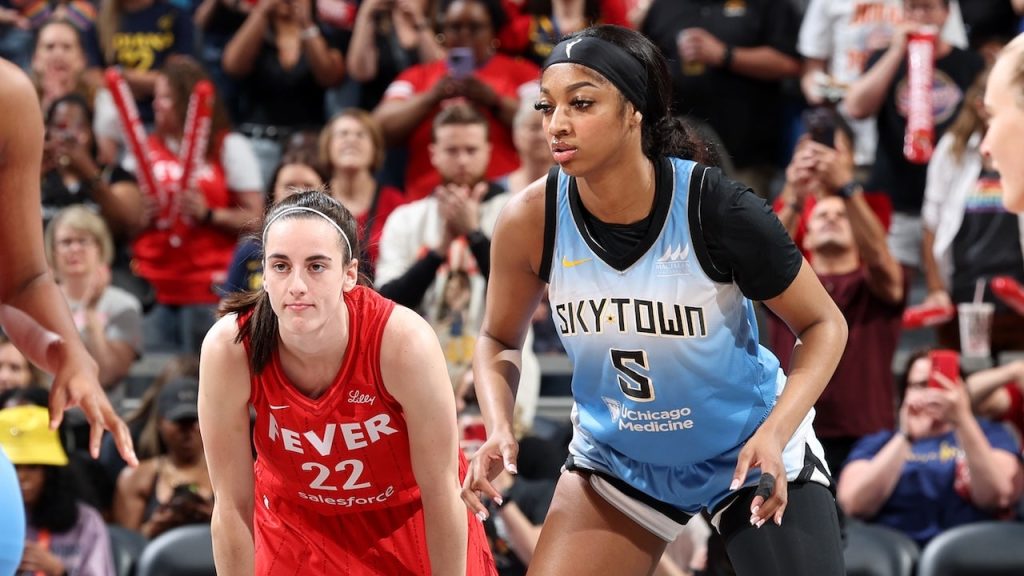Caitlin Clark was named the WNBA’s Rookie of the Year, with 66 out of 67 votes in her favor, beating out Angel Reese who received the one dissenting vote. Despite her historic season, breaking numerous league records, Clark’s selection was not unanimous, surprising many, including the panel on ESPN’s “WNBA Countdown.” Andraya Carter, one of the panelists, criticized the anonymous voting system in the WNBA, suggesting that voters should be identified, as they are in the NBA. Clark’s strong performance after the Olympic break, leading the Fever to the playoffs for the first time in eight years, helped her secure the Rookie of the Year title over Reese.
Earlier in the season, Reese had shattered a WNBA record with 15 consecutive double-doubles, creating a debate over the Rookie of the Year award. However, Clark solidified her position as the frontrunner with impressive statistics and leading her team to the playoffs. Reese’s season was cut short due to injury, allowing Clark to further distance herself in the race for the award. Despite setting a rebounding record, Reese’s Chicago team had a poor record and missed the playoffs, while Clark’s Fever had a successful season. Their rivalry dates back to their meeting in the 2023 NCAA national championship game, where Reese’s LSU team defeated Clark’s Iowa squad, leading to a viral moment and intense emotions from fans.
Throughout the season, Clark and Reese faced off multiple times on the court, with Clark’s Fever defeating Reese’s Sky in three out of four games. Both rookies were named All-Stars, highlighting their impact in their first season in the WNBA. The rivalry between the two players has been intensified by their reputations, fan bases, and on-court performances, with race playing a role in the narratives surrounding their careers. Despite the close competition for the Rookie of the Year award, Clark’s consistency and contributions to her team’s success ultimately earned her the recognition. The debate over the voting process and transparency in the WNBA continues, with calls for greater accountability and visibility for the voters in future awards.















